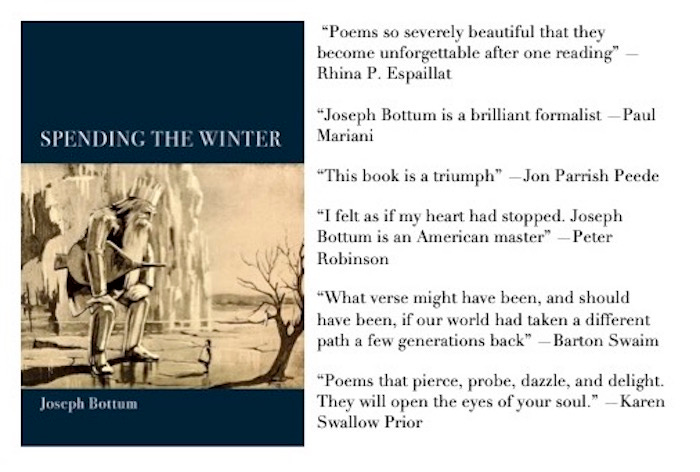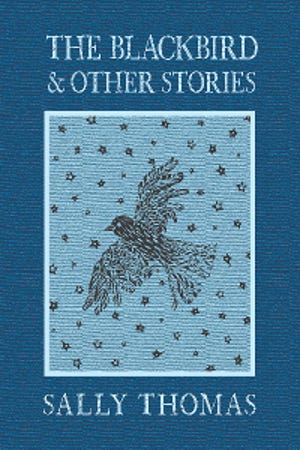Today’s Poem: I Slept, and Dreamed that Life was Beauty
Why did the Transcendentalists produce such minor poetry?

I Slept, and Dreamed that Life was Beauty
by Ellen Sturgis Hooper
I slept, and dreamed that life was Beauty; I woke, and found that life was Duty. Was thy dream then a shadowy lie? Toil on, sad heart, courageously, And thou shalt find thy dream to be A noonday light and truth to thee. ═══════════════════════
Born in Boston, Ellen Sturgis Hooper (1812–1848) was a woman deep in the counsels of the Transcendentalists and a regular poet in the pages of The Dial, their chief New England journal. In her 1840 “I Slept, and Dreamed that Life was Beauty,” she writes a six-line poem, in tetrameter couplets, that belongs in the sterner line of Transcendentalist thought — about how work aims us toward dreams, and a life of duty evolves into a life of beauty.
Like much of Hooper’s writing before her early death from tuberculosis at age 36, it is a poem that sets out to preach, which may be why we leave her work with a sense of flatness. A note about her reads: “A member of the Transcendental Club, she was widely regarded as one of the most gifted poets among the New England Transcendentalists. Her work is occasionally reprinted.” That is, of course, a sad juxtaposition of sentences: gifted Transcendentalist poet; occasionally reprinted. And yet, it may actually be fair.
The truth is that she was, in some ways, the best of the Transcendentalists — and that leaves us with a question I’ve puzzled at a few times before: Why did Transcendentalism produce such minor poetry? This was a major literary coterie, after all, in a very literary time, and yet what we have in poetry is some verse from Emerson, dribs and drabs from Thoreau and Alcott, the juvenilia of James Russell Lowell, and even more minor stuff. All the best poetry on transcendentalist themes is Transcendentalist only by courtesy, written by those who had read Emerson or had vaguely parallel thoughts.
Transcendentalism emerged from “democracy in contact with Puritanism,” to use a nice phrase that George Willis Cooke coined in the introduction to his 1903 anthology of the New Englanders’ work. And Hooper’s “I Slept, and Dreamed that Life was Beauty” is very much from the sterner, more puritanical side of that combination.
And yet, to browse Cooke’s The Poets of Transcendentalism is to be struck over and over by the same thought that comes from reading Hooper, even among those poets who sought to express a post-puritan universalism or a nature mysticism.

Even Cooke, their chief anthologist, concludes, “These poets . . . are so charmed with what they have to say, and it is of such a complex and subjective nature, that they cannot find simple and direct speech for its utterance. Hence the halting nature of their verse, its crippled meters, and its defective rhymes. Too often in their verse they are not poets, but philosophers.”
Cooke tends to ascribe the mediocrity of Transcendentalist poetry to a failure of the poets, which is certainly possible.
Then, too, there is the fact that Transcendentalism, developing in the late 1820s and 1830s, may simply have arrived a few years too early, before the Fireside Poets had developed the easy facility of verse that would establish schoolbook poetry in mid-19th-century America, with William Cullen Bryant (b. 1794), Henry Wadsworth Longfellow (b. 1807), John Greenleaf Whittier (b. 1807), Oliver Wendell Holmes Sr. (b. 1809), and James Russell Lowell (b. 1819).
But a fuller answer may come from within Transcendentalism itself. Something in the philosophy (or the pseudo-philosophy, at its gooiest) might fight against the poetic impulse. There’s a tension at the heart of the Transcendentalist movement. On the one hand, its proponents urged a sense of the inherent goodness of nature. On the other, they insisted on self-reliance and human independence.
A solution, as Emerson put it in his famous essay on Nature, is to “become a transparent eye-ball,” absorbing all, reflecting nothing: “I am part or particle of God.” And the problem is that particles of God don’t write much good poetry. They write stern verse lectures about toil and its striving for beauty, the way Ellen Sturgis Hooper did.






It would be quite a challenge to make good poetry out of conclusory abstractions such as Duty and Beauty without concrete support in observation and experience. Whitman and Dickinson, by contrast, give us lived ideas.
Before coming to man's estate, in high school, I read the "transparent eyeball" text and laughed aloud, thus prematurely ending my acquaintance with the Transcendentalists before it really began. I suppose I could have reacted similarly to Yeats' mystic system, but the poetry was too good to forego.